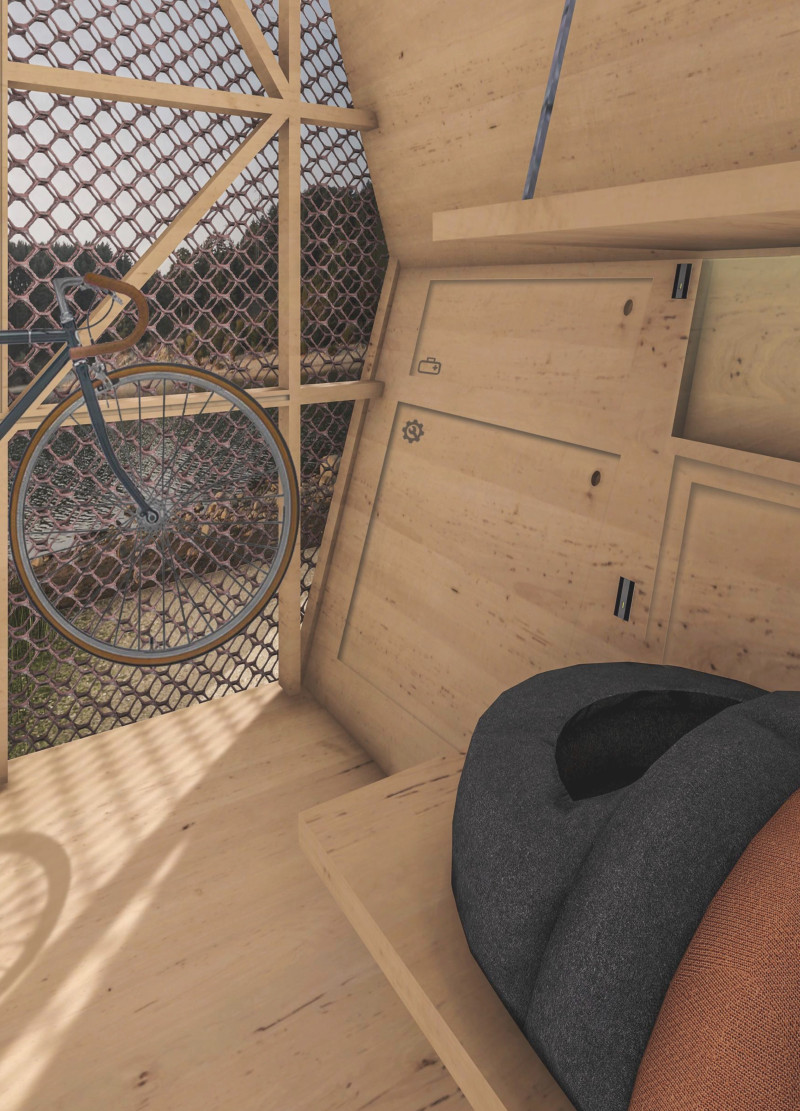5 key facts about this project
The bike hive design serves cyclists along the EuroVelo 6 route in Northern Europe. It is positioned to offer support and amenities for travelers, combining practical features with a welcoming design. The structure acts as a resting area and repair station, essential for enhancing the cycling experience. Multifunctional spaces allow travelers to recuperate and connect with one another in a friendly environment.
Concept and Functionality
The bike hive is built with cyclists in mind. It includes areas for resting and bike repairs, promoting a sense of community among users. The layout encourages interaction while providing necessary facilities that make the journey more enjoyable for everyone.
Structural Adaptability
A key feature of the bike hive is its ability to adapt to different terrains. This flexible structure can adjust itself to various landscapes found along the cycling route. Such adaptability ensures that it remains useful and effective, no matter the environment, providing consistent support for travelers.
Sustainable Technologies
Sustainability plays an important role in the bike hive's design. A wind turbine on the roof supplies power to essential features, such as Wi-Fi and USB charging ports. This setup allows cyclists to stay connected while on the move. Additionally, the bathroom module harnesses recycled and heated water, thanks to a solar film, showing a commitment to reducing environmental impact.
Visual Integration
The design of the bike hive reflects the architectural style of small towns nearby, helping it blend into its surroundings. This visual harmony creates a welcoming atmosphere for cyclists, allowing them to feel a sense of belonging. Elements such as the integrated information panel on the roof enhance the overall experience by providing guidance and connectivity for travelers as they navigate their routes.


























